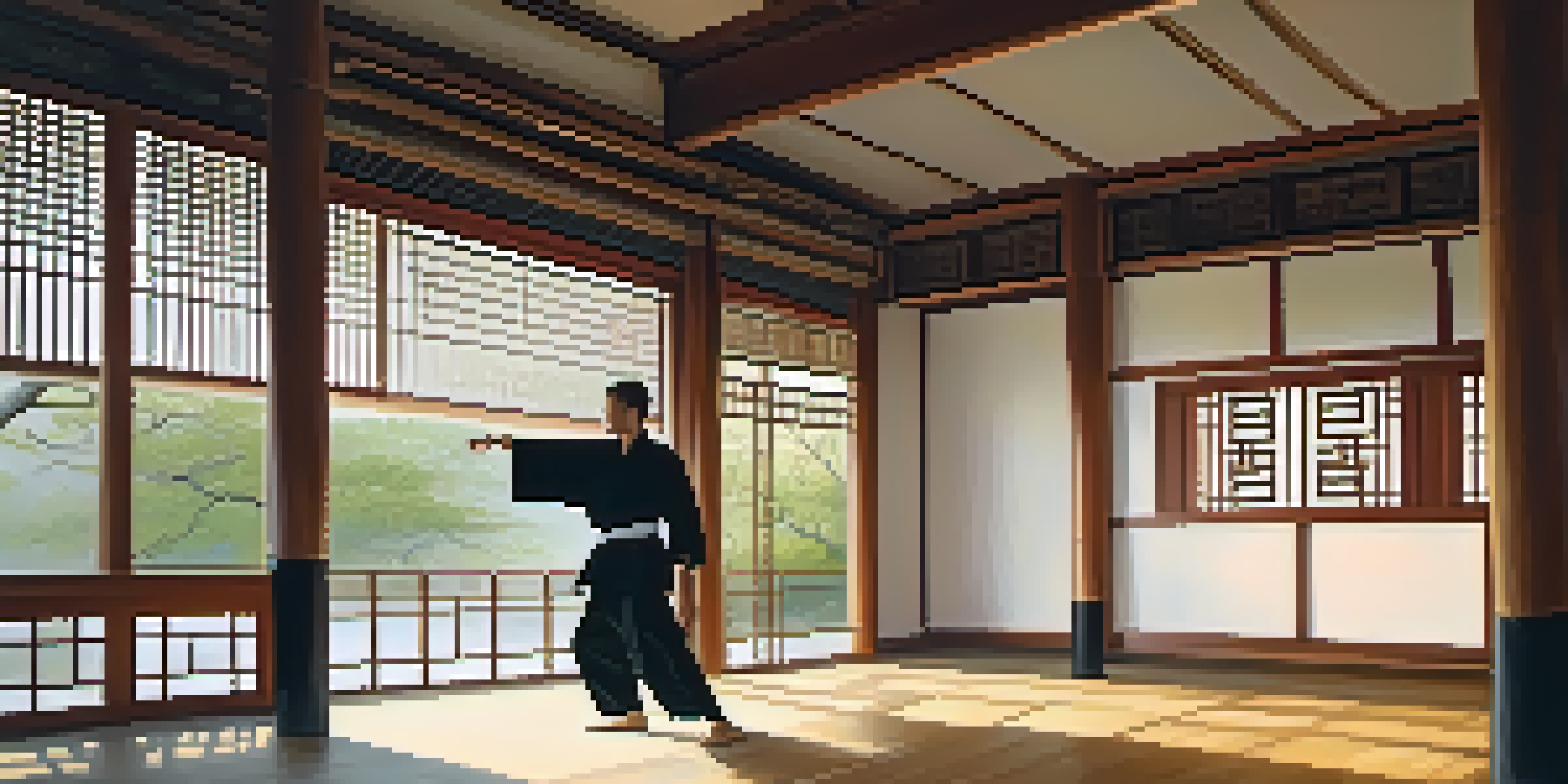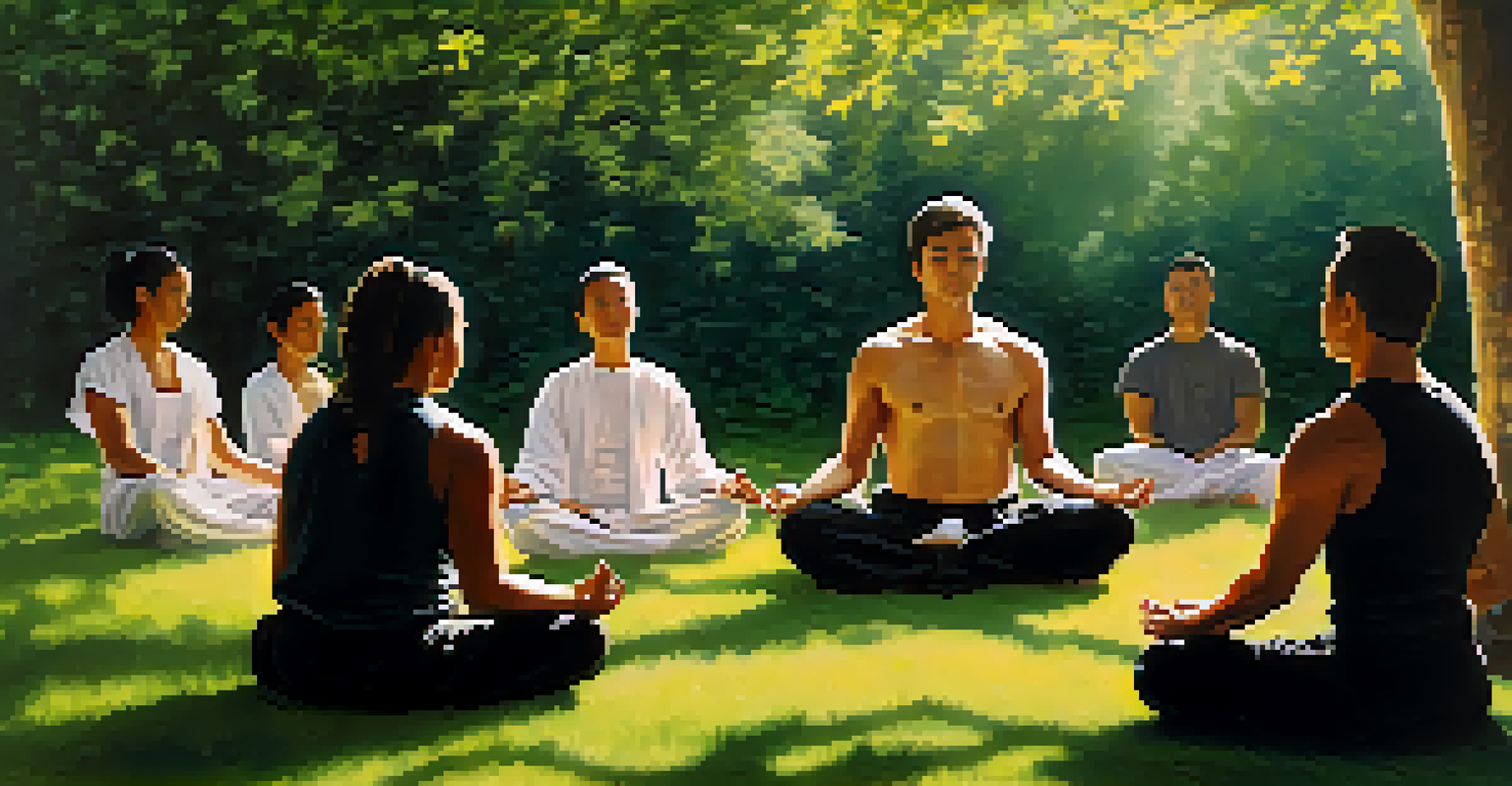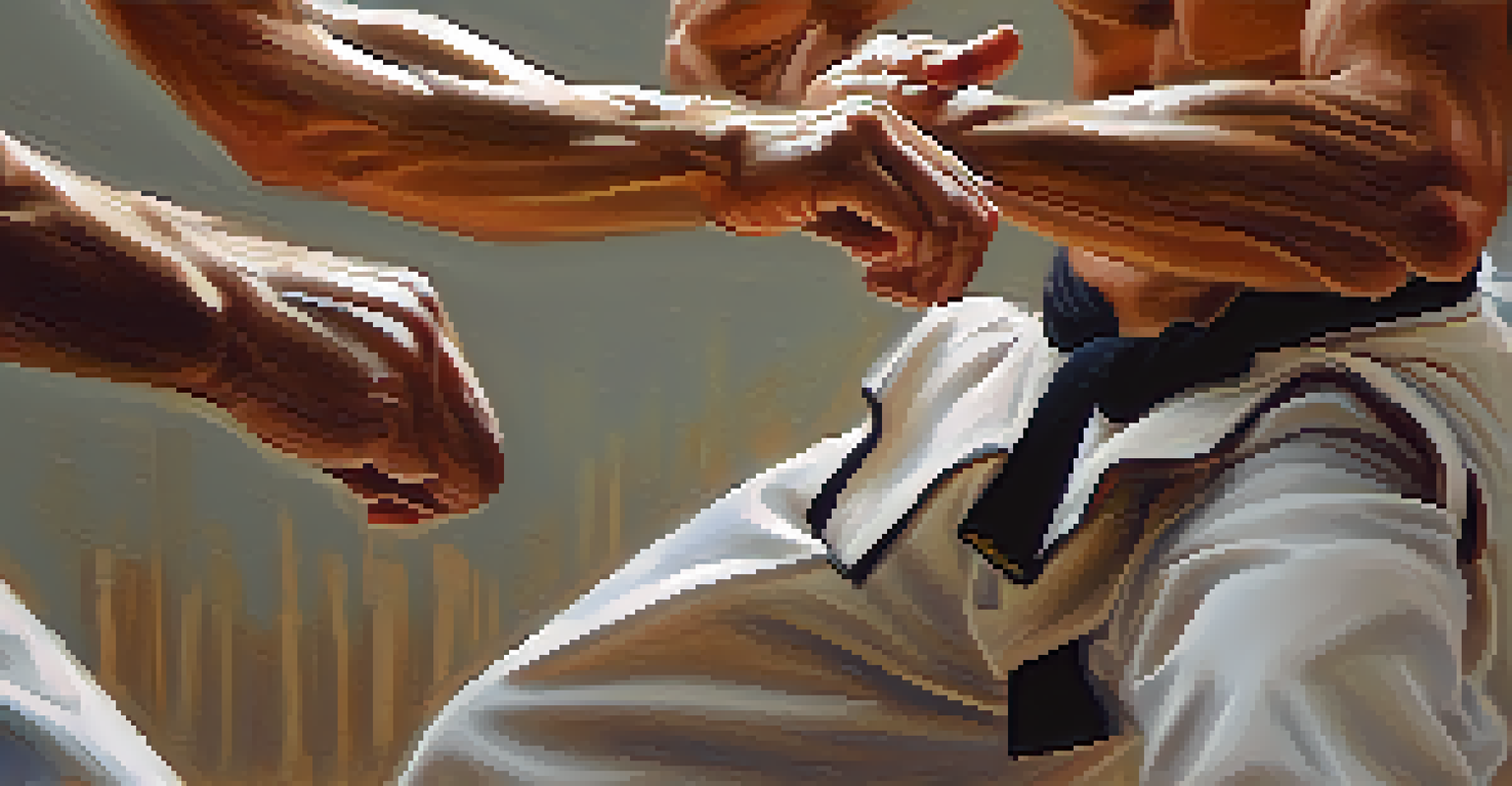The Influence of Eastern Philosophy on Martial Arts Practices

Understanding Eastern Philosophy and Its Core Concepts
Eastern philosophy encompasses a rich tapestry of beliefs and ideas, often focusing on harmony, balance, and interconnectedness. Concepts such as Tao, Zen, and Confucianism emphasize living in accordance with the natural order, which deeply influences various disciplines, including martial arts.
The mind is everything. What you think, you become.
At its core, Eastern philosophy encourages practitioners to seek wisdom not just through intellectual understanding but through experiential learning. This means that many martial artists don’t just learn techniques; they embody the principles behind those techniques, fostering a deeper connection to their practice.
Additionally, the focus on mindfulness and presence in Eastern philosophies enhances a martial artist's ability to react and adapt in combat situations. This mental clarity and emotional stability are essential for success not only in martial arts but also in everyday life.
The Role of Mindfulness in Martial Arts Training
Mindfulness, a key tenet of many Eastern philosophies, teaches practitioners to be fully present in the moment. In martial arts, this means focusing entirely on each movement and breath, allowing for improved precision and control.

Practicing mindfulness can also help martial artists manage stress and anxiety, both in and out of the dojo. When one learns to quiet the mind and center themselves, they can better face challenges, whether in competition or personal life.
Mindfulness Enhances Martial Arts
Practicing mindfulness allows martial artists to focus fully on their movements, improving precision and emotional stability.
Furthermore, this mindful approach fosters a deeper connection between the body and mind, enhancing overall performance. The more in tune a martial artist is with their body, the more fluid and effective their movements become.
The Influence of Taoism on Martial Arts Techniques
Taoism, with its emphasis on the 'Way' or 'Path,' significantly influences martial arts practices. It encourages practitioners to flow with their movements and opponents, rather than forcing techniques, which can lead to a more natural and effective fighting style.
Simplicity is the ultimate sophistication.
In martial arts like Tai Chi, you can see the principles of Taoism in action. The emphasis on slow, deliberate movements exemplifies how practitioners can cultivate internal energy, or 'Qi,' aligning their physical actions with the rhythm of nature.
Moreover, Taoist philosophy teaches the value of yielding and flexibility, which is crucial in combat situations. Understanding when to push forward and when to retreat can make the difference between victory and defeat.
Zen Buddhism and Its Impact on Martial Arts Discipline
Zen Buddhism emphasizes discipline and meditation, which are integral to martial arts training. The practice of Zen encourages martial artists to cultivate an unwavering focus and clarity, essential for both training and competition.
The principle of 'beginner's mind,' a Zen concept, encourages martial artists to approach each training session with openness and curiosity. This mindset allows practitioners to continuously learn and improve, regardless of their skill level.
Taoism Promotes Natural Flow
Taoism encourages martial artists to flow with their movements and opponents, leading to a more effective fighting style.
Many martial arts schools incorporate meditation practices into their training regimens, helping students develop mental resilience. This mental strength not only enhances their combat skills but also translates into everyday challenges.
The Interconnectedness of Mind, Body, and Spirit
Eastern philosophies often emphasize the unity of mind, body, and spirit, a principle that is deeply woven into martial arts practices. This interconnectedness is crucial for achieving mastery and balance in martial arts.
Practitioners learn that physical techniques are only part of the equation; mental focus and spiritual awareness are equally important. A well-rounded martial artist understands that true strength arises from harmonizing these three elements.
This holistic approach not only enhances martial arts performance but also promotes overall well-being. By nurturing the mind, body, and spirit, practitioners can lead more balanced and fulfilling lives.
Eastern Philosophy’s Role in Developing Character
Eastern philosophies often stress the importance of character development and moral integrity. In martial arts, this translates into a strong emphasis on respect, humility, and discipline, shaping practitioners both on and off the mat.
Many martial arts schools incorporate lessons on ethics and values into their training, reinforcing the idea that martial arts is not just about fighting but about personal growth and self-improvement.
Character Development is Key
Eastern philosophies emphasize character development, instilling respect, humility, and discipline in martial artists both on and off the mat.
This focus on character helps create a supportive community among practitioners, fostering camaraderie and mutual respect. As a result, martial arts become a journey of self-discovery, where individuals learn to overcome internal and external challenges.
The Global Spread of Martial Arts and Eastern Philosophies
As martial arts spread globally, the teachings of Eastern philosophies began to influence practices worldwide. This cross-cultural exchange has enriched martial arts, making them more accessible and relevant to diverse practitioners.
Today, many martial arts schools incorporate Eastern philosophical teachings into their curricula, helping students understand the deeper significance of their practice. This connection to philosophy can enhance one's martial arts journey, making it more meaningful.

Moreover, as martial arts gain popularity, the principles of Eastern philosophies are increasingly being embraced outside of martial arts, promoting mindfulness and balance in a fast-paced world.